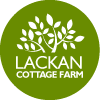Something that many of the readers of this blog, and of the blogs that I follow have in common is that we are to some degree, trying to derive a living from the land – usually fairly small bits of it too. Agriculture has grown from humble roots to the massive intensive monocultures that we see in the west today, largely in a bit to prove Malthus wrong, and prevent the ever increasing population from spreading our food resources so thinly that the masses starve themselves out of existence.
As many of us realise, recent global weather patterns have done really quite nasty things to grain yields around the world, and for a number of years we have consumed more than we have produced, chipping away at the reserves that form a barrier between what passes for normality, and utter chaos.
Movements such as Dark Mountain take the view that the question we face is not ‘what if the worst happens’ but ‘given that the worst is happening, what do we do now’, and many of the human scale movements that are springing up are different facets of our reaction to the latter question. For those that have recognised that it is the more realistic question to ask, there is a sense of urgency, and so they look to the margins for their answers.
There is usually a tipping point where the whispers that can heard in those margins begin to be spoken in the mainstream, and so it was that I listened with interest to this talk with Manuel Castells on Radio 4, about Alternative Economic Cultures – http://www.bbc.co.uk/programmes/b01n9yg1
Manuel seems to be rather good at spotting trends before they are widely recognised, and he has noticed that more and more people are turning to systems such as barter, local currency (witness the Bristol Pound, and the Totnes Pound), and to social trade systems such as freecycle, and movements such as Occupy, which seek to deal with the massive inequalities in our society.
At a time when the divide is particularly obvious, and ‘ordinary people’ (if they exist), are questioning why they are enduring the pain of extra taxation and cuts in services, to fund support of banking institutions that are then pulling the rug from under them, the need for alternatives is becoming increasingly desperate. For many the answer lies in information. Permaculture. Transition Towns, Low Impact Homes. Eco Villages. Alternative Housing. Occupy. The Land Is Ours. WWOOF. Grow It Yourself. Home Educators.
All these ideas are helping so many people, and most importantly they are empowering people to do things for themselves, and to come together to help each other, without waiting for The System to come to the rescue. We will survive and thrive in spite of it, not because of it.
If you are a blog reader, pass the ideas on, maybe someone will find them useful, you never know.






An interesting article – http://www.permaculture.co.uk/news/1510122387/are-agricultural-co-ops-solution-world-hunger
Great information Steve. Think Landshare is another great organization. Can’t believe there over one hundred thousand people waiting for allotments in the UK. It’s a pity it’s not take off down here in Southern Ireland. I would gladly let somebody rent some of my land for a small fee.
Thanks for the info.